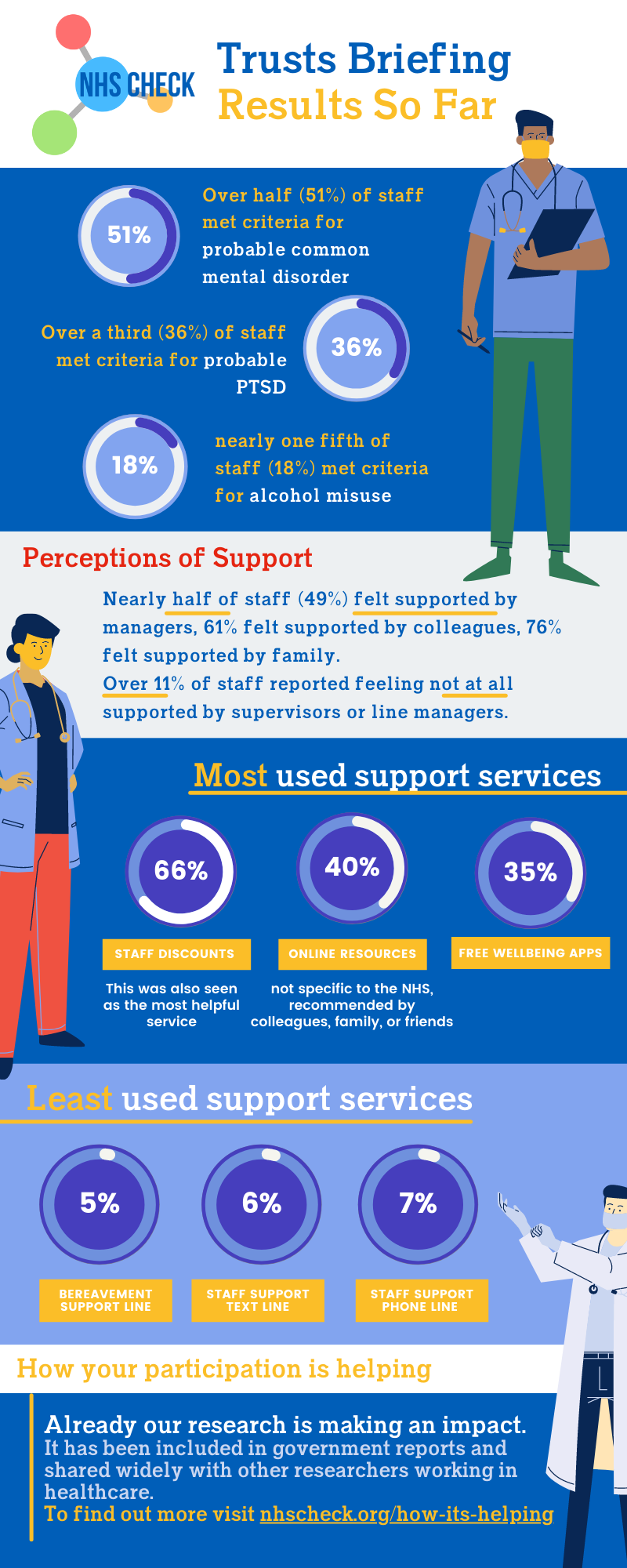Beth Croak (PhD Student & Research Assistant at King’s Centre for Military Health Research) has put together a video on what she will be exploring in her PhD ‘ Mental Health, Occupational Outcomes and Wellbeing Among Lower Paid NHS staff. ‘
Its set to be a fascinating insight into how our research will help her understand how low wages affect NHS staff’s experiences.
Watch below:
In December 2021, we brought together researchers, NHS staff, professional bodies and policymakers in a Policy Lab to consider the study’s implications. We looked at questions around the current needs of staff, the use and effectiveness of available support, likely future needs, and implications for the effective provision of future support.
Click the image below to read the full paper.
Our preliminary data from three London NHS Trusts shows high rates of probable common mental disorders. Groups most at risk of reporting mental health problems include: women, younger staff, and nurses. Our findings suggest a pressing need to identify which support initiatives are the most effective and a requirement for longer-term follow up to monitor changes in wellbeing as the pandemic progresses.
